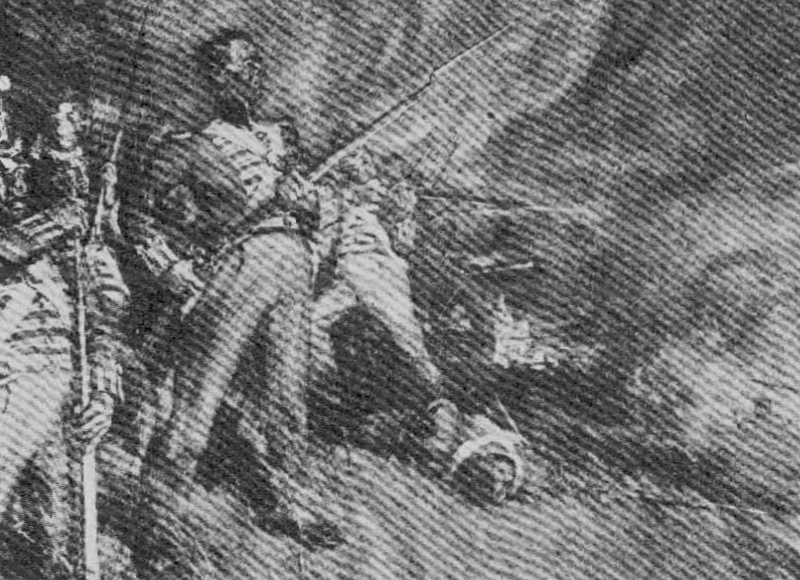
HISTORICAL EVENTS THAT TOOK PLACE ON THIS DAY IN CANADA
24 July

Battle of Lundy's Lane, 1814
War at Lundy's Lane
Canada's most popular patriotic song, "The Maple Leaf Forever," includes the phrase "At Queenston Heights and Lundy's Lane our brave fathers side by side . . . firmly stood and nobly died." The battle of Lundy's Lane began on July 24, 1814, and continued throughout the next day between Twelve Mile Creek (St. Catharines) and Chippewa on the Niagara Peninsula. It was one of the most bitterly fought battles of the War of General Drummond threw into action 1,900 British regulars, 390 Canadian regulars, and 800 Canadian militia—a total of 3,090 men. General Brown countered with 2,700 regulars, 1,350 volunteers from New York and Pennsylvania, and 150 "Canadian Volunteers" led by a traitor, Willcox.
It was a confused battle, fought first in moonlight, and then in the heat of day. Although they could hear the roar of Niagara, the troops had no water. When the end came, they dropped to the ground and slept where they had stood. The British-Canadians had 84 men dead, 559 wounded, and 235 missing. The Americans said they lost 171 men, but the British-Canadians buried 210 the following morning. The Americans also had 572 wounded and 110 missing. Warfare was becoming more modern. Most of the American deaths were due to British shrapnel, and what were called rocket missiles. The leading generals on both sides were among the wounded.
Who won the battle? As in many other cases, perhaps neither side won outright. The Americans eventually withdrew after burning Chippewa Bridge and hurling a good deal of their supplies and tents into the Niagara, so the British-Canadians were probably justified in claiming victory. The battle certainly benefited the British, for it relieved the pressure on Canada and enabled British sea-power to harass the Atlantic coast of the United States. The best thing that can be said about the battle is that it was the last time Americans and Canadians killed each other.
OTHER NOTABLE EVENTS ON THIS DAY IN CANADIAN HISTORY
24 July
-1534 Jacques Cartier planted a cross at Gaspé.
-1762 St. John's, Newfoundland, was taken by the French under De Ternay. It was recaptured by the British, led by Lord Colville, on September 18.
-1790 Spain agreed to pay reparation for the British ships seized at Nootka, British Columbia.
-1846 The electric telegraph was demonstrated at Toronto.
-1848 James Ferrier, the first locomotive imported from Britain, was used on the Montreal-Lachine railway.
-1860 The Prince of Wales (later King Edward VII) arrived in Newfoundland. He continued to Halifax on July 30; Saint John, August 2; Charlottetown, August 9; and Quebec, August 18.
-1933 The World Grain Exhibition was held at Regina.
-1967 President Charles de Gaulle of France delivered "Quebec I.ibre" speech in Montreal. Two days later he cancelled his official visit to Ottawa and returned to France.